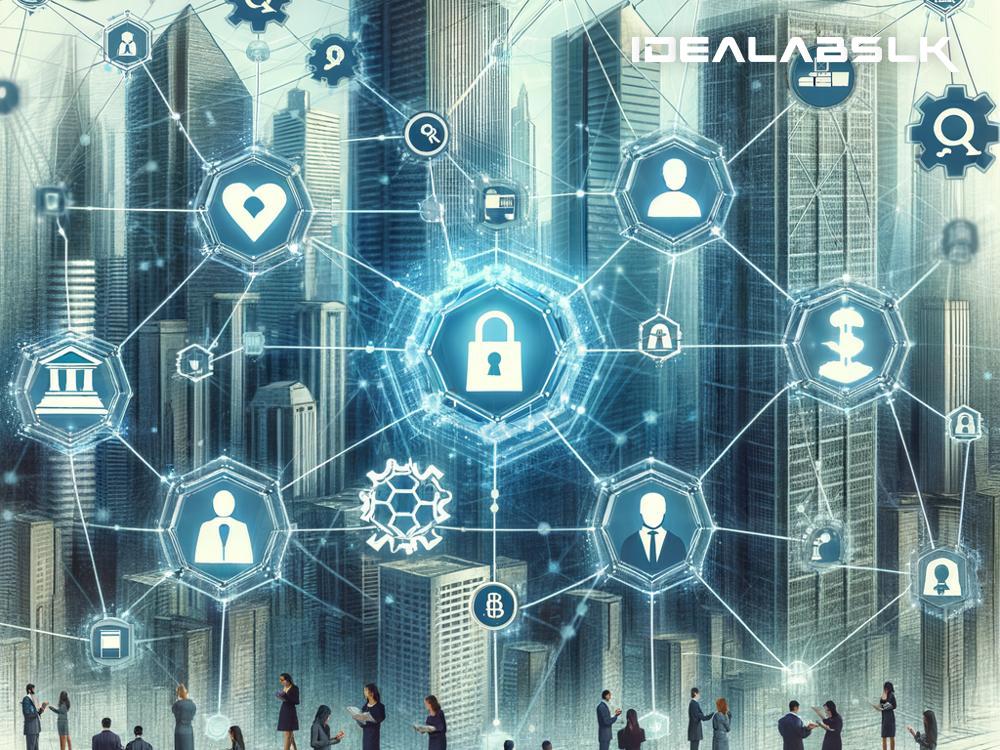Unlocking Efficiency and Transparency: The Transformation of Real Estate Loan Management through Blockchain Technology
In today's rapidly evolving technological landscape, blockchain is no longer just a buzzword associated with cryptocurrencies like Bitcoin. It’s a revolutionary technology that has potential applications across various industries, and the real estate sector is no exception. Specifically, in the realm of real estate loan management, blockchain is stepping in as a game-changer, promising to overhaul traditional systems with its unique blend of efficiency, transparency, and security. But what exactly does this mean for borrowers, lenders, and the broader real estate market? Let’s dive into a simple explanation of how blockchain can transform real estate loan management.
The Traditional Real Estate Loan Process: A Quick Overview
Before delving into how blockchain can revolutionize the process, it’s essential to understand how the current real estate loan management system works. Typically, getting a real estate loan involves multiple parties: the borrower, lenders (which could be banks or other financial institutions), real estate agents, and various legal and government entities for verifications and record-keeping. This process is often lengthy, paper-intensive, and fraught with inefficiencies such as manual errors, lack of transparency, and potential for fraud.
What is Blockchain?
At its most basic, blockchain is a digital ledger technology where transactions are recorded in a secure, transparent, immutable (unalterable), and decentralized manner. Once a transaction is recorded on a blockchain, it is nearly impossible to change or hack, instilling a level of security and trustworthiness that is often missing in traditional systems. Originally developed for Bitcoin, the applications of blockchain have expanded far beyond, including into the real estate sector.
The Impact of Blockchain on Real Estate Loan Management
Enhanced Transparency and Security
Blockchain's inherent qualities of transparency and security introduce newfound clarity and trust into the real estate loan process. Every transaction on a blockchain is recorded with an immutable timestamp and is visible to all parties involved. This means that from the initial loan application to the final property purchase, every step is traceable and verifiable. For example, when a property's title is recorded on a blockchain, its history is easily accessible, significantly reducing the risks of fraud and title disputes.
Streamlined Processes and Reduced Costs
Real estate transactions are notoriously paperwork-heavy, requiring significant time and resources to manage documents such as titles, loan agreements, and property inspections. By utilizing smart contracts on blockchain, many of these processes can be automated. A smart contract is a self-executing contract with the terms of the agreement directly written into code. This means that once predetermined conditions are met (e.g., successful property inspection), the next step of the loan process (e.g., release of funds) can automatically occur without human intervention. This not only speeds up the entire process but also reduces costs associated with manual handling and verification.
Improved Accessibility and Inclusion
Blockchain can democratize access to real estate investments and loans by making the market more accessible to a broader audience. Traditionally, real estate investments require significant capital, limiting participation to relatively affluent individuals and institutional investors. However, with blockchain, real estate assets can be tokenized, meaning they can be divided into smaller, digital shares. This enables individual investors to buy into real estate properties with much smaller capital, increasing inclusivity and opening up new funding avenues for borrowers.
Real-World Applications and Future Possibilities
Globally, several startups and established companies are already exploring blockchain for real estate loan management. From providing platforms for recording property titles on a blockchain to developing comprehensive ecosystems for managing the entire loan lifecycle, the innovation in this space is promising. As blockchain technology matures and regulatory frameworks evolve to accommodate these changes, we can expect to see an exponential growth in its application.
Conclusion
Blockchain in real estate loan management is poised to redefine the way we think about lending, borrowing, and investing in properties. By simplifying processes, enhancing security, and opening up new possibilities for market participation, blockchain technology holds the potential to make the real estate market more efficient, transparent, and inclusive. While we are still in the early days of adoption, the promising benefits of blockchain could see it become a cornerstone technology in the future of real estate transactions. As we move forward, the real estate industry must be prepared to embrace this change, adapting to and adopting blockchain solutions to stay competitive in a digital-first world.

